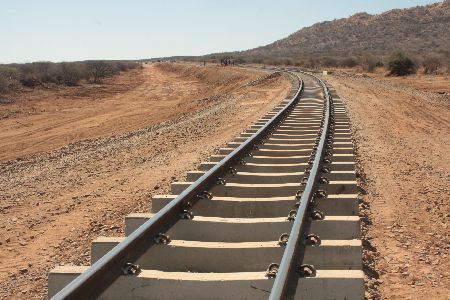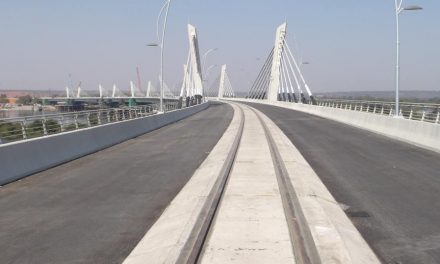
There is an ocean between investment expectations and the government’s development agenda

The large gaps between the government’s development goals, what the law allows it, and what the private sector expects, surfaced unavoidably earlier this week at an all-encompassing infrastructure conference held in Windhoek.
From first impressions, it appeared that this will be a technical gathering catering for contractors, engineers, architects, quantity surveyors and others who love to wear hard hats every now and then as they strut across dusty construction sites.
From the exchanges, both from the podium and from the floor, it quickly became apparent there is an extraordinary large contingent of investment managers, fund administrators, financial planners, private equity investors and others who love to make projects horribly expensive by collecting fees and commissions for shoving capital to and fro.
The Lithon infrastructure conference was successful beyond measure effectively bringing together a spectrum of opinions and facts on a single platform between divergent parties, many of whom who would love to stick a dagger in the guts of many others. (Full disclosure: I was a presenter in one of the sessions so I am biased that the proceedings should go well.)
Nevertheless, as early as the first session, it was obvious that between the government’s goals, tactics and strategies, and what the private sector wants, there is an ocean dividing them.
For instance, we learned from the podium that Public Private Partnerships are just a procurement tool and that all projects will be submitted to the provisions of the new Procurement Act. This implied that unsolicited projects are a no no and even if some of these tie in with NDP5, they all will still be subjected to the same tendering mechanism for price and competence discovery.
From the floor came the retort that this does not make sense. Private investors are looking for a competitive edge and this can only come through a process of identifying, scoping and submitting projects that they feel will provide adequate financial returns while at the same time, promoting the development goals.
The disconcerting slant to this is that all the money pedlars want to convince the government of the need for this or that particular project while the government officials remained adamant that priorities will be set according to targets and objectives, and not the other way around.
In short, the exchanges all came down to two opposing views. From the government’s side, it has a clear strategy through the development plans, what must be built first, what are fundamental for further development, and how it must be financed. For the government, I gathered, it is very much a play of balancing priorities with affordability, hoping that a large measure of the risk and the funding will be carried by the investors.
From the investment community’s side, it was equally clear that they have their own priorities and that their main concern is tying investment capital to specific projects regardless of the return on investment. I dare say, it was quite glaring how many of the new hopefuls in investment management wanted to flog projects that will see them get a slice of the anticipated tsunami of funds that will become available once the finance minister’s new Domestic Asset Requirements are fully in place, or once the Regulation 29 dividends become real.
It is not my place to say who is right and who is wrong. But the whole Lithon approach is one based on ethics, so I believe there definitely is room to express an opinion about more appropriate investments, especially regarding infrastructure, and the more self-enriching type of investments.
Which side of the aisle you sit, is for you to decide.
I sense the infrastructure space is going to heat up, not so much from a project perspective but from an investment view. There is this pervasive feeling that the government will continue to borrow money only so that the ambitious infrastructure projects can go ahead. According to all conventional wisdom, they have little option not to carry on with this strategy that has dumped us into dire straits.
From the investor perspective, this leads to the expectation that every other well-connected individual only needs an institutional investor to back him, upon which he will go find, bribe or coerce someone somewhere in government to sign off a project, irrespective of the national development strategy and goals. Most importantly, this approach also has a complete disregard for whose money is being invested. The perception is: the money is there, the government needs it for its projects, we must only figure out a way to link the two then we cash in, big time.
My impression is that the government officials I heard speak, are nobody’s fools. I assume they are so familiar with the tactics of so many project promoters, that they now know where to cover for their wickets, or perhaps for the government’s growing debts.
What also struck me was the lack of technical knowledge of many of the investment hopefuls. They have smelled the money and they know they can enrich themselves and their patrons, if only they can cross this one annoying hurdle: How does one convince a civil servant to OK my particular pet project?










































